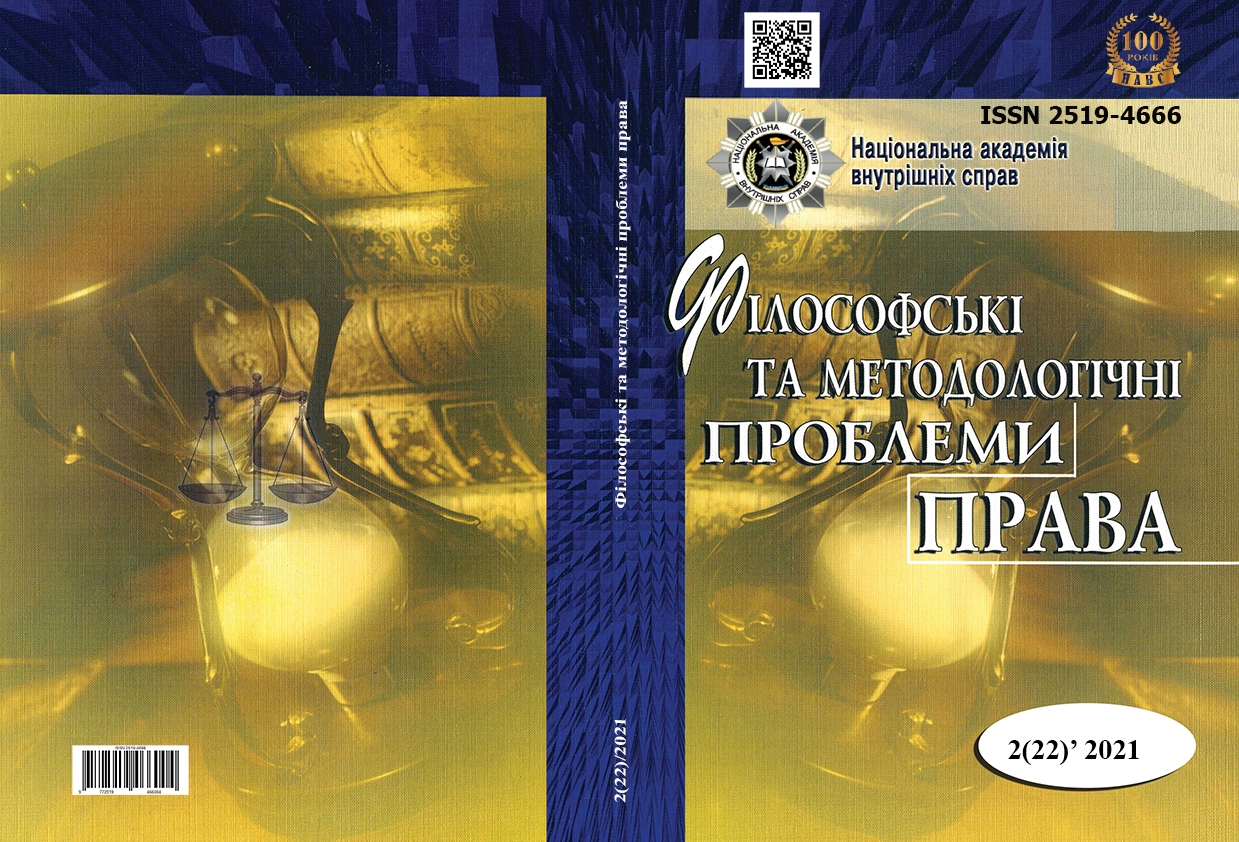Constitution of the Slovak Republic as a Constitution of the Fourth Generation (Worldview and Culturological Aspects)
Abstract
Purpose of the article is to study the qualitative features of the current Constitution of the Slovak Republic in terms of general cultural standpoints and taking into account the specific socio-cultural context within which this document was created, based on an analysis of the latest research in the Slovak science of constitutional law. Examination became possible thanks to the analysis of the text of the current Constitution of the Slovak Republic (as amended) and the researches of representatives of the Slovak constitutional law, published in periodicals and monographic literature, which served as material for the study of this topic. Methodology. In the process of preparing the article, a sociocultural methodological approach and a number of scientific methods were applied, the most important of which are: hermeneutic, modeling, axiological, comparative legal method. This set of methodological tools ensured the integrity of understanding the role of the Constitution in the modern life of the Slovak Republic.The scientific novelty lies in the fact that the article reflects the process of creating the Constitution of the Slovak Republic, which took place in the context of the general socio-political and constitutional tendencies of the late twentieth century. The specificity of the entry into force of the Constitution of the Slovak Republic is indicated, which is represented by a two-act temporary action (through the phenomenon of the first and second entry into force). It also reflects questions about the role and significance of the Constitution in the process of integration of the Slovak Republic into the European Union. Conclusions. It is shown that the Constitution of the Slovak Republic is the constitution of the fourth generation (the so-called post-socialist), that determined the peculiarities of its content: the prevalence of provisions on human rights and their protection (as an antithesis about the past socialist way of life and compliance with the constitutional models of the world leading states); recognition and defense of the idea of cultural and historical identity of the Slovak people; taking into account the specifics of the functioning of democratic countries of the twentieth century and consolidating these democratic principles.
Keywords: constitutionalism; constitution; types of constitution; generation of constitutions; state; socio-cultural context; national identity.
Downloads
References
Baraník. K. Ústava na hviezdnom nebi: vzťah Ústavy Slovenskej republiky k medzinárodnému právu. 1 vyd. Praha : Leges, s.r.o., 2020. 296 s.
Бокоч М. Проблеми взаємодії конституційного порядку та міжнародного права. Науковий вісник Ужгородського національного університету. 2021. Т. 65. С. 51–56. (Серія «Право»). doi: https://doi.org/10.24144/2307-3322.2021.65.8.
ChovanecJ. Ústava SR – pojem, vznik, štruktúra a novelizácia. Štát a právo.2021. No. 2 (3). S. 134–146. doi: https://doi.org/10.24040/sap.2021.8.2-3.134-146.
Яковлев А. И. Конституционный строй: социальный и правовой аспект. Вопросы философии. 1995. № 10. С. 3–14.
Ляшенко В. М. Європейське право як феномен духовно-практичного освоєння світу : дис. … канд. філос. наук : 12.00.12. Київ, 1999. 197 с.
Lukáš Т. Kvalita vyjadrovania zákonodarcu v kontexte právnej zodpovednosti podľa zákona o obecnom zriadení. Štát a právo. 2020. No. 4. S. 384–393. doi: https://doi.org/10.24040/sap.2020.7.4.384-393.
Медушевский А. Н. Конституционные циклы в Центральной и Восточной Европе. Социологический журнал. 2004. № 3–4. С. 83–119.
Poluch M., Cibulka Ľ. Štátne právo Slovenskej republiky. 3 vyd. Šamorín : Heuréka, 2009. 341 s.
Шаповал В. Феномен конституції як основного закону. URL: https://rd.ua/storage/attachments/%D0%A8%.
Тихомиров Ю. А. Государство : монография. М. : Норма ; Инфра-М, 2013. 320 с.
Ústava Slovenskej republiky (v znení ústavného zákona č. 323/2004 Z. z.). URL: https://wipolex.wipo.int/ru/text/187468.
Abstract views: 200 PDF Downloads: 470
Copyright (c) 2022 Philosophical and Methodological Problems of Law

This work is licensed under a Creative Commons Attribution-NonCommercial-NoDerivatives 4.0 International License.
- Authors reserve the right to authorship of their own work and transfer to the magazine the right of the first publication of this work under the terms of the Creative Commons Attribution License, which allows other persons to freely distribute published work with mandatory reference to authors of the original work and the first publication of an article in this magazine.
- Authors have the right to enter into separate additional agreements on non-exclusive dissemination of the work in the form in which it was published in the journal (for example, to post an article in the institution's repository or to publish as part of a monograph), provided that the link to the first publication of the work in this journal is maintained.
- The journal's policy allows and encourages the posting of articles by authors on the Internet (for example, in electronic storehouses of institutions or on personal websites), both before the submission of this manuscript to the editorial office and during its editorial processing, as this contributes to the creation of a productive scientific discussion and positively affects the efficiency and dynamics of citing the published work.




